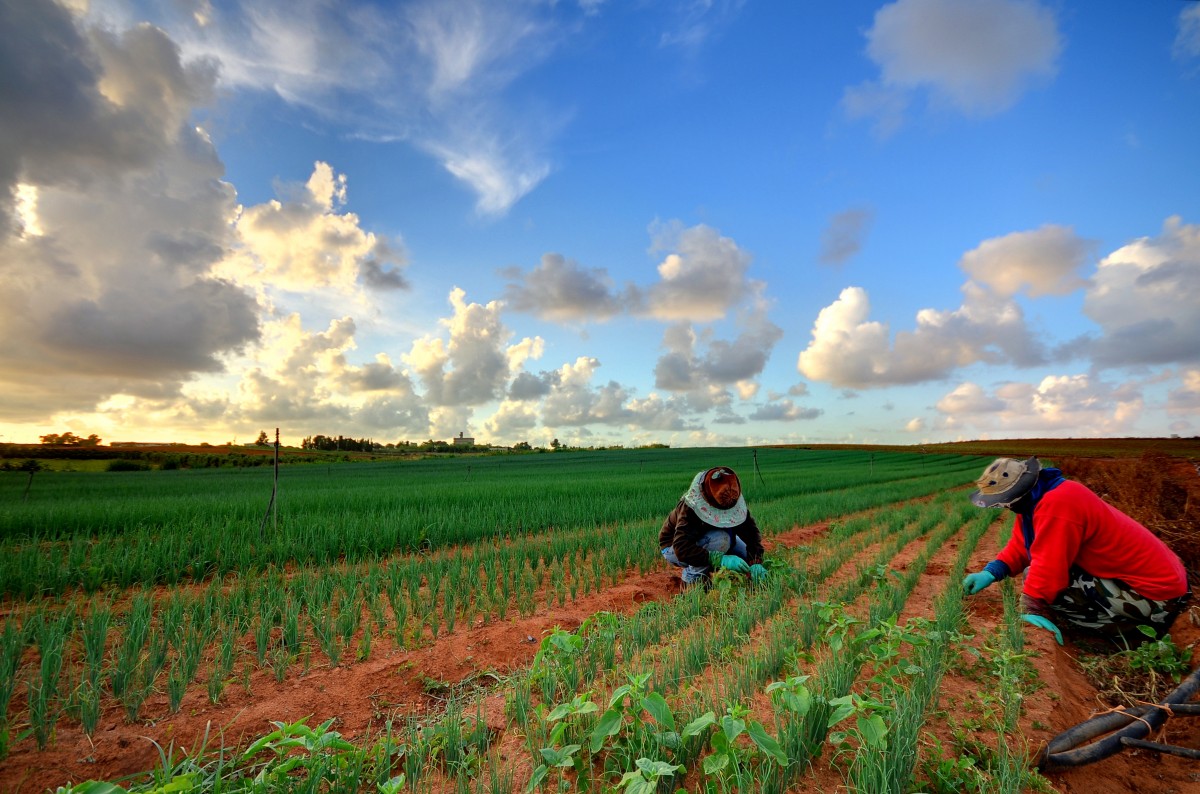Amy Allen is a law student at the Elisabeth Haub School of Law at Pace University and a guest contributor to this blog.
On Wednesday, December 11, 2019, the House passed a bipartisan amendment to the Immigration and Nationality Act, the Farm Workforce Modernization Act. The proposed legislation creates an opportunity for currently undocumented agricultural workers to obtain authorized work status with specific rights not only for themselves, but also for their spouses and minor children, subject to certain conditions. The proposed bill is the product of months-long negotiation between agribusiness and farmworker organizations. It also reflects a bipartisan agreement between 24 Democrat and 20 Republican House representatives, all of whom represent districts with significant amounts of agriculture. Immigrant and undocumented farmworkers play a critical role in the agricultural sector. Although the farm bill does not directly address immigration or labor policy, these subjects have been used as leverage for its passage.
Rep. Zoe Lofgren (D-CA) and Rep. Dan Newhouse (R-WA) led the coalition for the proposed bill to create stability within the agricultural labor work force. Supporters seek to protect farmers and farmworkers from U.S. Immigration and Customs Enforcement (ICE) raids across the country. One recent raid, in August 2019, led to the detention of 680 mostly Latino workers in Mississippi chicken processing plants. Such ICE raids have occurred with heightened frequency. Two other recent high-profile raids have targeted Nebraska tomato greenhouses and the dairy facilities in upstate New York.
It is impossible to calculate the exact number of undocumented workers in the industry, but the Department of Labor has found that around 50% of farmworkers are undocumented. However, others estimate that up to 75% of agricultural workers lack authorized work status.
Among other changes, the Act would create work authorization for currently undocumented agricultural workers who have worked at least 180 days over the last two years. Undocumented workers could apply for temporary status as a “Certified Agricultural Worker,” which, once approved, would be valid for five and a half years. The proposed amendment also creates the possibility of future permanent status. Eligible workers who have worked at least 100 days each year as a CAW may be able to renew their status for another five and a half years. After working a specified number of years post-enactment, a worker may apply for permanent status.
Even with a pathway to work-authorized status, farmworkers will continue to face challenging work conditions. Under federal law and in most states, agricultural workers are exempt from overtime pay and other wage protections, including the federal minimum wage on smaller farms. Farmworkers also endure serious physical and bodily risks on a daily basis from highly dangerous, and often times repetitive, activities. The Occupational Safety and Health Administration deems agricultural work among the most hazardous occupations not only due to injuries and death from the physical acts, but also from prolonged exposure to pesticides and chemicals as well as long-term sun exposure that can lead to long-term health issues and cancer. In 2015, for every 100,000 workers, there were 22.8 fatal injuries; in total, there were 570 recorded fatalities in the agricultural industry. Farm workers are also exposed to pesticides that metabolize in their bodies within days and studies suggest that farmworkers’ entire families are at risk of exposure. The hazardous conditions go further for women. A study in California found that at least 90% of female farmworkers report sexual harassment as a major workplace problem and hundreds have been forced to trade sex or endure harassment to secure their jobs.
Providing authorized work status may help farmworkers address workplace safety concerns by allowing them to report those conditions without fear of immigration consequences. However, more legislation will be needed to guarantee these workers the same wages and working conditions as workers in other industries. While Senator Kamala Harris (D-CA) introduced the Fairness for Farm Workers Act to require overtime pay for farmworkers and eliminate minimum wage exemptions, the bill has not seen traction thus far.
Despite its shortfalls, the Farm Workforce Modernization Act enjoys support from both farmers and farmworker advocates alike, though there is also opposition from both groups. Supporters now hope the Senate will pick it up for consideration so that the Act may soon become law.
Note: This post summarizes the Farm Workforce Modernization Act, but does not comprehensively outline the terms of its provisions. This summary does not constitute legal advice and should not be relied upon for determining one’s eligibility for the certification described herein. The proposed Act has not been signed into law.
The views and opinions expressed on the FBLE Blog are those of the authors and do not necessarily reflect the official policy or position of FBLE. While we review posts for accuracy, we cannot guarantee the reliability and completeness of any legal analysis presented; posts on this Blog do not constitute legal advice. If you discover an error, please reach out to contact@farmbilllaw.org.


